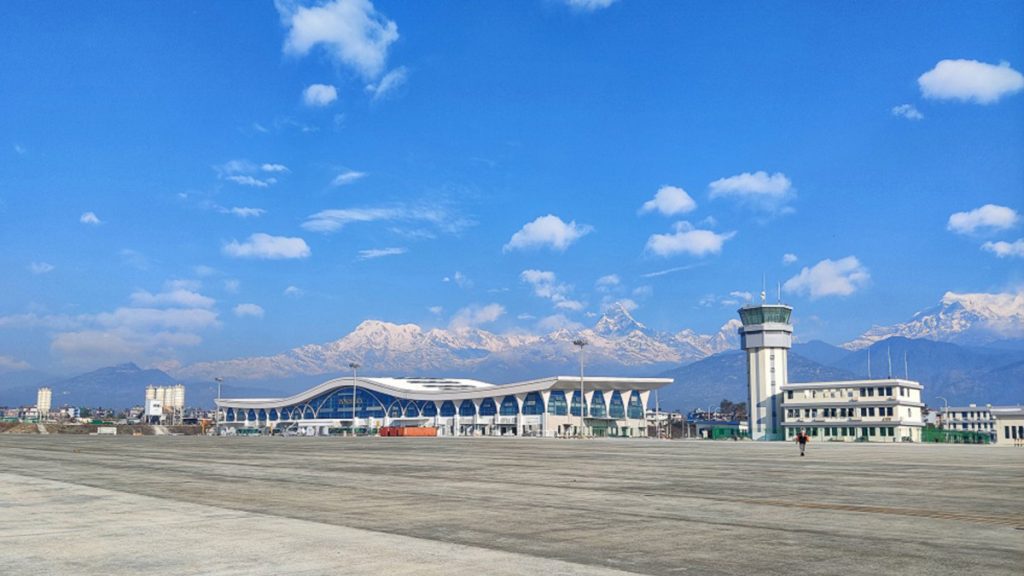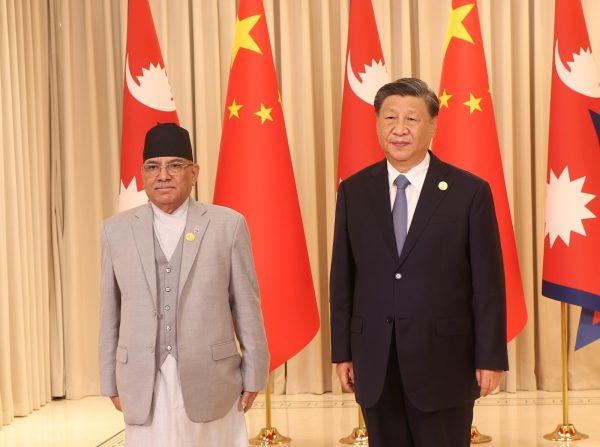



The Belt and Road Initiative (BRI) has faced setbacks in Nepal, with concerns growing about the country falling into a debt trap due to Chinese projects. Nepal signed an agreement to participate in the BRI in 2017, but progress in implementing BRI projects has been slow. The 16th meeting of the Nepal-China Diplomatic Consultation Mechanism took place in Kathmandu, where questions about the BRI were raised in Parliament. Prime Minister Pushpa Kamal Dahal did not dismiss concerns about falling into the trap of Chinese loans through the BRI [5eece5a7].
Nepal's skepticism towards the BRI stems from concerns about falling into debt traps and the increasing trade deficit with China. China's disregard for Nepali interests, such as the disputed maps and the proposed free trade agreement, has further strained relations. Additionally, two out of the nine proposed BRI projects in Nepal were awarded to Indian companies instead [2b460f3a]. Beijing's attempts to push new initiatives onto Nepal have been met with resistance, highlighting the need for meaningful engagement between the two countries. The failure of the BRI in Nepal underscores the importance for China to address long-standing concerns and engage with Kathmandu [2b460f3a] [5eece5a7].
The BRI, announced by China in 2013, aims to facilitate infrastructure and economic development. However, concerns have been raised about the negative impact of BRI projects in countries that have embraced the initiative. China's engagement in regions like the Middle East, Asia, Africa, and South America has been growing, posing a challenge to the regional power balance for countries like Nepal. China has invested over $770 billion in BRI projects in more than 100 countries. Some countries that have embraced the BRI have experienced increased poverty and destitution, while others have faced issues such as transparency, debt problems, corruption, and project cancellations [5eece5a7].
In Nepal, the newly inaugurated Pokhara Regional International Airport (PRIA), funded through substantial loans from China, has only had five international charter flights since its commencement on January 1, 2023. The limited number of international flights has raised questions about the airport's impact on the local economy. The underwhelming performance of PRIA has sparked a debate about the economic viability of the airport and the broader implications of relying on substantial Chinese loans for infrastructure development in Nepal [f11ae832].
Recent developments indicate a significant increase in human trafficking from Nepal to China. Nepalese and Chinese brokers have expanded their networks, exploiting victims who are often held hostage and subjected to physical and mental torture, labor exploitation, sexual exploitation, prostitution, and hazardous work. A Nepali woman named Sundari Rai has been arrested for trafficking another Nepali woman to China under the pretext of arranging her marriage to a Chinese man. Rai arranged a meeting between the victim girl and a Chinese man in Thamel, Kathmandu, facilitated their marriage, and sent the girl to China on a visit visa. Rai contacted the victim through Facebook, enticing her by claiming that she had been married to a Chinese citizen for 10 years and had moved to China. Rai took the victim to China on a visit visa, sold her for 150,000 rupees, and then returned to Nepal. The police investigation revealed that the Chinese nationals held the victim at their home, where they physically and mentally tortured her and repeatedly sexually abused her. The police, in coordination with the Nepali Embassy in China, rescued the victim and brought her back to Nepal. The search for the Chinese nationals and other suspects involved in the incident is ongoing [7516d01b].
China's Belt and Road Initiative has raised concerns about a potential debt trap in Nepal. The slow progress in implementing BRI projects, coupled with the limited international flights at the Pokhara Regional International Airport, has highlighted the need for Nepal to carefully consider its engagement with China and the long-term implications of accepting substantial loans for infrastructure development. Additionally, the recent increase in human trafficking from Nepal to China underscores the need for stronger measures to combat exploitation and protect vulnerable individuals [5eece5a7] [f11ae832] [7516d01b].